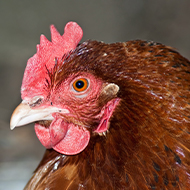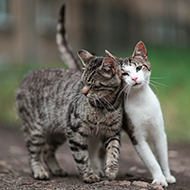Poultry keepers urged to prepare for winter avian influenza

The UK is currently free of highly pathogenic avian influenza.
The UK's four chief veterinary officers have issued a joint statement calling on poultry farmers to protect their flocks ahead of the winter to reduce the risk of disease.
Their advice, which forms part of the UK's winter avian influenza awareness campaign, includes maintaining high levels of biosecurity and practising good farm hygiene.
The statement reads: “Avian flu is a constant threat to all poultry, and with winter approaching there will be an increasing risk of disease making its way into the UK from migrating birds. It is therefore important that all keepers of poultry, including game birds and pet birds, act now to reduce the risk of transmission of avian flu to their flocks.”
The UK is currently free of highly pathogenic avian influenza. But with outbreaks of the disease in Kazakhstan and Russia, the risk of migratory birds spreading the disease to domestic poultry is increasing.
Among the steps that poultry keepers can take to protect their flock include placing birds’ feed and water in fully enclosed areas that are protected from wild birds, and removing any spilt feed regularly. Poultry keepers are also advised to put fencing around outdoor areas where birds are allowed.
The statement continued: “Enhanced biosecurity should be maintained at all times, including regularly cleaning and disinfecting the area where you keep birds and separating them from wild birds wherever possible. Poultry keepers across the UK are urged to remain vigilant and alert APHA in Great Britain or DAERA in Northern Ireland as soon as possible if they suspect any signs of the disease.”
The UK has remained free of highly pathogenic avian influenza since September 2017. A low pathogenic H5N3 strain of the disease returned in December 2019 but was quickly met with government action.
Máire Burnett, chair of the UK Poultry Health & Welfare Group, said: “As migratory birds return to winter in the UK, there is a risk they could bring avian influenza and infect the domestic wild bird population. I urge all poultry and gamebird keepers to ensure they have robust biosecurity measures in place to reduce the risk of disease and protect bird health and welfare.”



 International Cat Care (ICatCare) has announced a free, virtual event dedicated to caring for unowned cats to explore new ideas and ways of working.
International Cat Care (ICatCare) has announced a free, virtual event dedicated to caring for unowned cats to explore new ideas and ways of working.